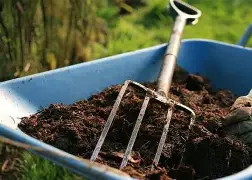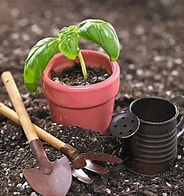Easy Guide to Homemade Organic Fertilizer

Liquid Fertilizer Method
Compost Tea (Quick Nutrient Boost)
This method provides rapid nutritional support for plants, especially suitable for plants in urgent need of nutrients.
Materials: Bucket, water, organic materials (grass clippings, weeds, coffee grounds, fruit and vegetable scraps)
Instructions:
- Fill bucket half-full with organic materials (chopping increases surface area)
- Fill with water (rainwater is ideal, tap water should be dechlorinated)
- Steep for 24-48 hours, up to 1-2 weeks for stronger fertilizer
- Strain liquid and dilute with water (typically 1:1 or 1:3 ratio)
- Apply to soil or use as foliar spray
Compost Method
Long-term Soil Amendment
This method takes longer but produces nutrient-rich soil amendment.
Materials: Compost bin, green materials (nitrogen-rich), brown materials (carbon-rich)
Instructions:
- Layer green and brown materials
- Keep pile moist
- Turn pile every few weeks to aerate
- Ready when transformed into dark, crumbly soil (2-12 months)
Other Homemade Options

Eggshell Calcium Fertilizer
Crush eggshells and mix with vinegar to make calcium-rich fertilizer. Dilute before use.
Banana Peel Fertilizer
Dry or boil banana peels, then crush and add directly to soil around plants.
Coconut Water Nutrient Solution
Mix 3.5 tablespoons fresh coconut water with 4 cups chlorine-free water, spray on leaves and roots.
Aged Manure
Use only aged manure as fresh manure can be too strong. Mix into soil or add to compost pile.
Usage Tip: Test all homemade fertilizers on small areas first. Start with lower concentrations as different plants have varying tolerance levels.
Environmental Value and Significance
Homemade organic fertilizers provide an economical solution that transforms kitchen waste and yard trimmings into valuable nutrients through simple organic fertilizer fermentation processes. This approach significantly reduces chemical fertilizer dependency, minimizes environmental pollution, and improves soil structure. While urban gardeners can practice basic composting, larger operations utilize equipment like the wheel compost turner to enhance the organic fertilizer fermentation process, demonstrating how fermentation composting technology for organic fertilizer can be adapted to various scales.
For those considering commercial production, understanding organic fertilizer machinery price becomes essential when scaling up from home composting to establishing a small organic fertilizer factory. The transition from manual turning to mechanized systems using large wheel compost turner or chain compost turner equipment marks a significant step in production capacity. These machines form the core of any complete organic fertilizer production line, efficiently managing the fermentation process that converts organic waste into high-quality fertilizer.
The integration of specialized equipment like the organic fertilizer granulator or other fertilizer granulator types enables the transformation of composted materials into uniform, easy-to-apply products. This scalable approach – from simple backyard composting to sophisticated production lines – allows both urban balcony gardeners and rural farming enthusiasts to participate in environmental protection while promoting sustainable agriculture. The versatility of modern organic fertilizer technology ensures that everyone can contribute to greener agricultural practices regardless of their scale or budget.